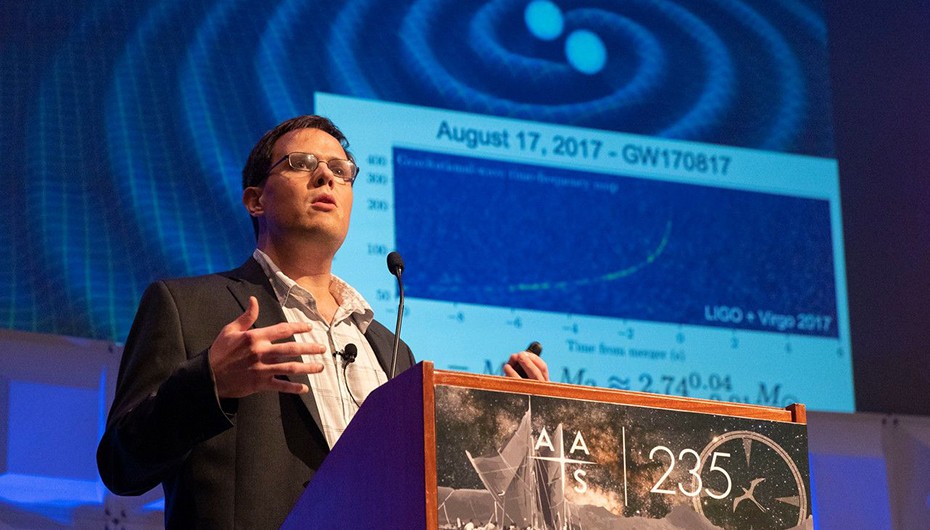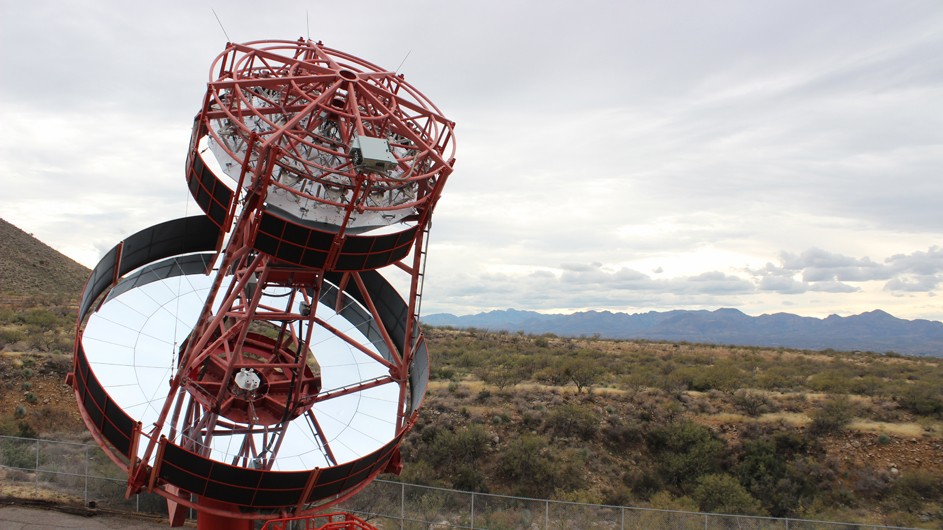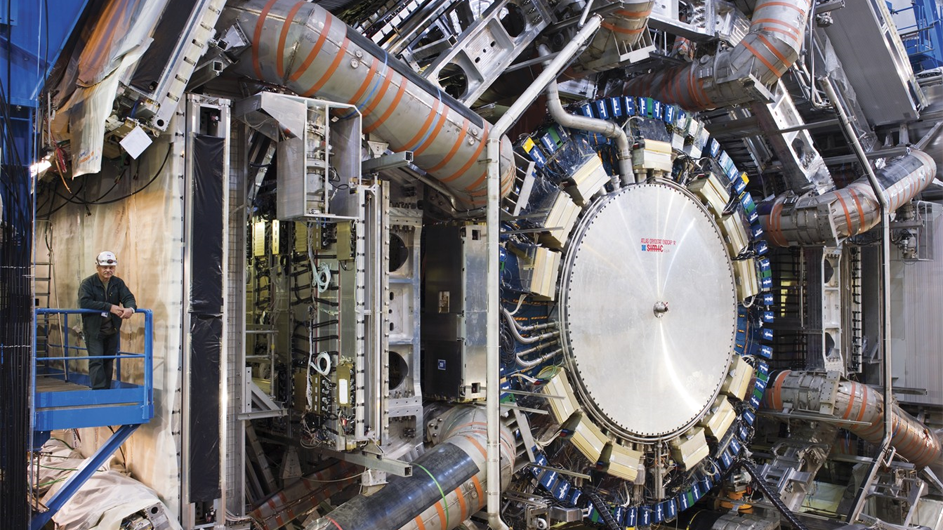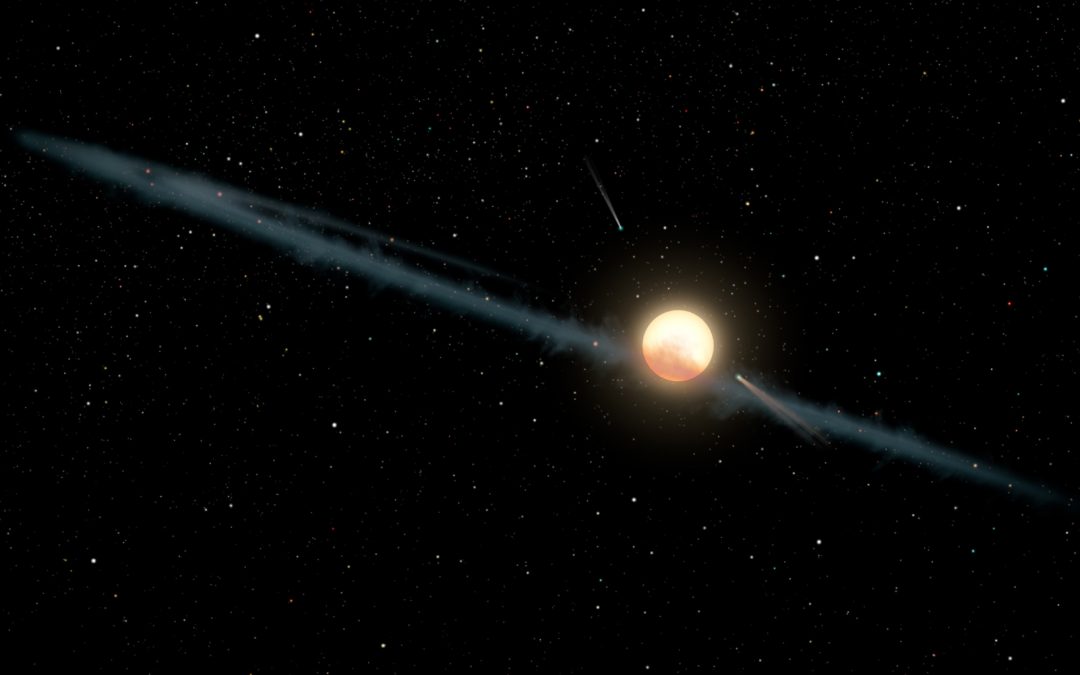
Columbia Astrophysicist Brian Metzger Named 2020 Blavatnik Laureate
Research on the origins of gold and other heavy metals garners the nation’s largest unrestricted scientific prize for young scientists.

Research on the origins of gold and other heavy metals garners the nation’s largest unrestricted scientific prize for young scientists.

The first-of-its-kind telescope promises to shed new light on the physics of high-energy phenomena, from supernovae to dark matter.

David Kipping, an assistant professor in Columbia’s Department of Astronomy, uses Bayesian statistics to shed light on how extraterrestrial life might evolve in alien worlds.

The National Science Foundation awards $75 million to a Columbia-led team to support major improvements necessary to advance high-energy physics.

Chunks of an exomoon’s dusty outer layers of ice, gas, and carbonaceous rock may be accumulating in a disk surrounding Tabby’s Star, blocking the star’s light and making it appear to gradually fade.